Congratulations to two CIES researchers for their Best Paper Awards!
Two CIES PhD students Sana Shahoveisi and Qihan Wang won Best Paper Awards at the Sixth Australasian Conference on Computational Mechanics (ACCM2023) held in Melbourne in December 2023.
The biennial ACCM conference series provides an international platform for the exchange and dissemination of recent findings on a diverse range of advanced topics within Computational Mechanics. ACCM 2023 brought together more than 120 researchers to discuss the recent advances in computational methods, and the applications of numerical modelling techniques in various areas across different disciplines. In addition to the plenary sessions, over 100 papers were presented in 21 parallel sessions.
Congratulations to both Sana and Qihan for their commitment, brilliant cutting-edge scholarship, and success!
At ACCM2023 Sana Shahoveisi was awarded the prestigious Steven Prize for the best paper. Sana delivered a presentation on her computational framework addressing the critical issues of modelling flaws and defect propagation, with a specific emphasis on fracturing in porous media. The paper titled “Hydro-Mechanical Fully Coupled Phase-Field Modelling of Fracture in Porous Media” provides a comprehensive study for simulating dynamic fractures. The focus is on addressing the challenges associated with crack width estimation in this context. The model is able to capture dynamic crack propagation by incorporating the kinetic energy in the coupled hydro-mechanical-damage equations. This research contributes to advancing our understanding of fractures in porous media through a comprehensive and innovative approach.
Sana’s research has been conducted under the supervision of Professor Nasser Khalili, Dr Babak Shahbodagh, Dr Mohammad Vahab, and Dr Sascha Eisenträger.
Throughout her academic journey, Sana has developed valuable expertise in numerical methods and modelling. Her research primarily centres on the modelling of flaws and defect propagation in porous media, with a specific focus on hydro-mechanical coupling and the phase-field method. In pursuit of this objective, she employs a numerical analysis approach and integrates physics-informed neural networks into her research methodology.
Qihan Wang
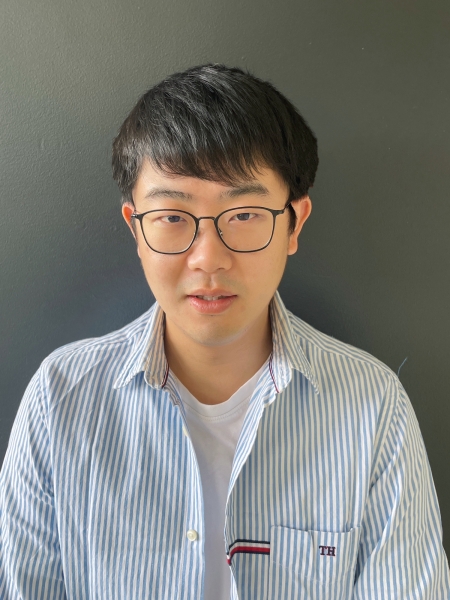 At ACCM2023 CIES PhD candidate Qihan Wang won a Best Paper Award for his presentation on his computational framework addressing the practice-stimulated challenges in uncertainty quantification with statistical imperfections. The paper titled “Generalized Structural Reliability Analysis with Imperfect Statistics through Machine Learning Technique” provides a machine learning-aided generalized structural reliability analysis.
At ACCM2023 CIES PhD candidate Qihan Wang won a Best Paper Award for his presentation on his computational framework addressing the practice-stimulated challenges in uncertainty quantification with statistical imperfections. The paper titled “Generalized Structural Reliability Analysis with Imperfect Statistics through Machine Learning Technique” provides a machine learning-aided generalized structural reliability analysis.
Material-geometric uncertainty and data imperfections are considered simultaneously within the proposed framework. A novel machine-learning technique is developed to facilitate effective meta-model construction from datasets with a certain level of imperfections. This research contributes to the development of machine learning techniques with additional features and application of machine learning techniques in structural reliability analysis. This research has been conducted under the supervision of Professor Wei Gao.
Qihan also won a Student Best Paper Award at the 13th International Conference on Structural Safety & Reliability(ICOSSAR) held in Shanghai on September 2022. The information shared within ICOSSAR is mainly related to structural safety, reliability, and risk-informed decision-making. Qihan delivered a presentation at Shanghai addressing the cutting-edge issues in uncertainty quantification, with a specific emphasis on hybrid uncertain quantification for engineering structures with nonlinear behaviours.
Qihan’s paper titled “Machine Learning Aided Hybrid Uncertainty Quantification for Engineering Structures with Nonlinear Behaviours” provided a method with the integration of optimization programming, sampling, and machine learning techniques to quantify the effects of aleatoric and epistemic uncertainties simultaneously on engineering structures with nonlinear behaviours. This research contributes to hybrid uncertainty quantification for nonlinearity-involved engineering structures through an effective and computationally efficient approach. This research has been conducted with the co-authors Dr. Yuan Feng and Dr. Di Wu, and under the supervision of Professor Wei Gao.
Qihan’s doctoral thesis topic is on Machine Learning Aided Structural Safety Assessment. His supervisors are CIES Professor Wei Gao from UNSW Civil & Environmental Engineering and Professor Guoyin Li from UNSW Mathematics and Statistics.
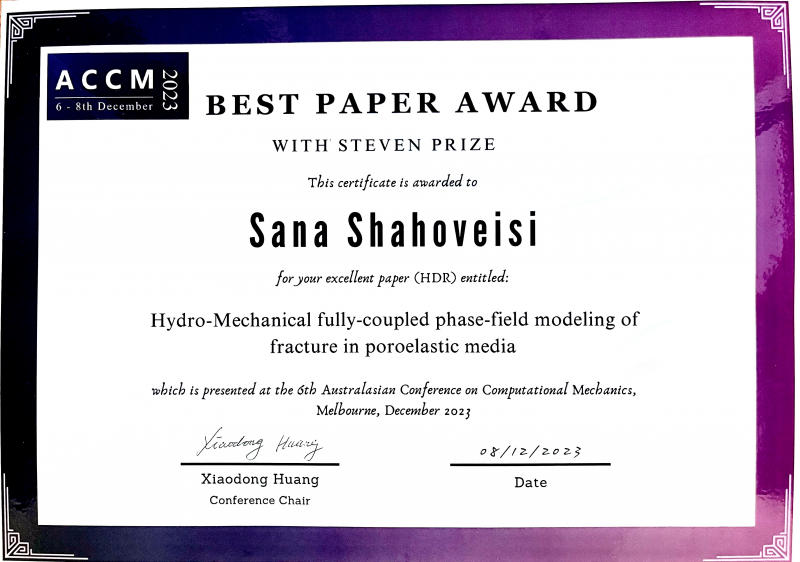
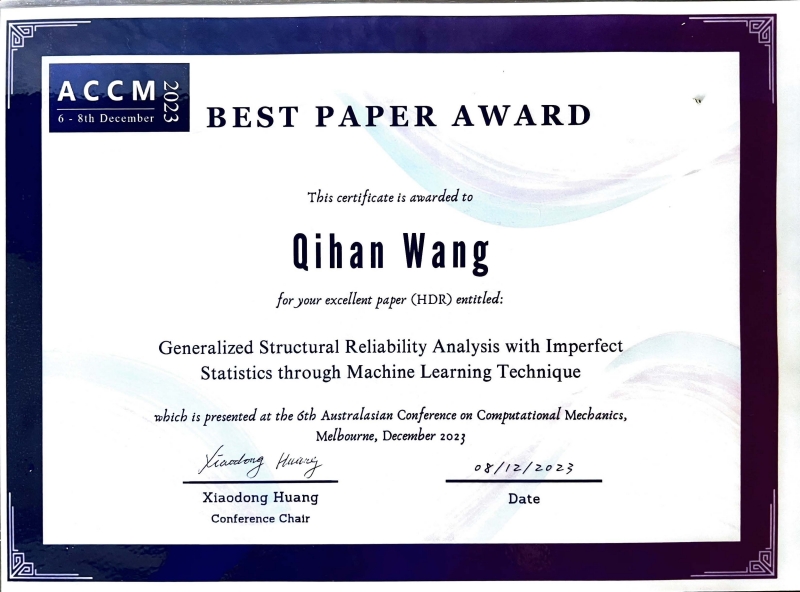
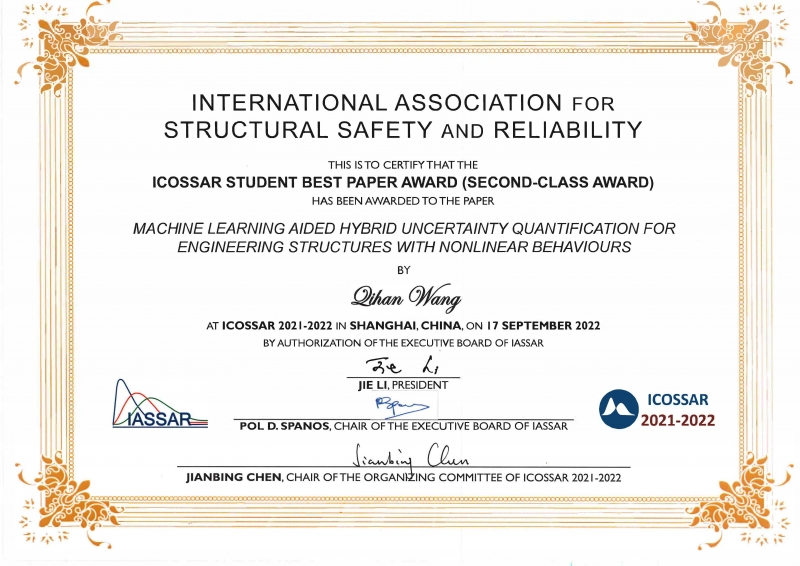

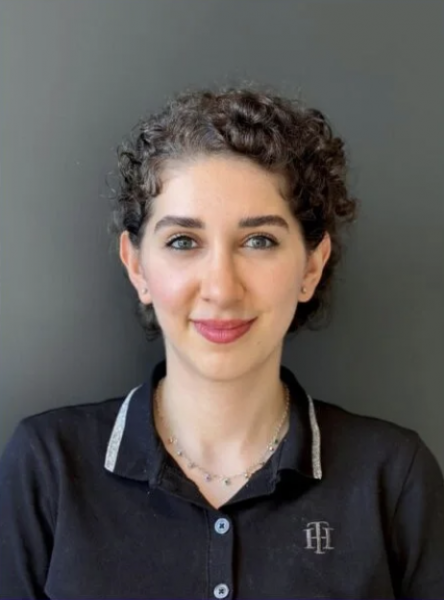 Sana Shahoveisi
Sana Shahoveisi

